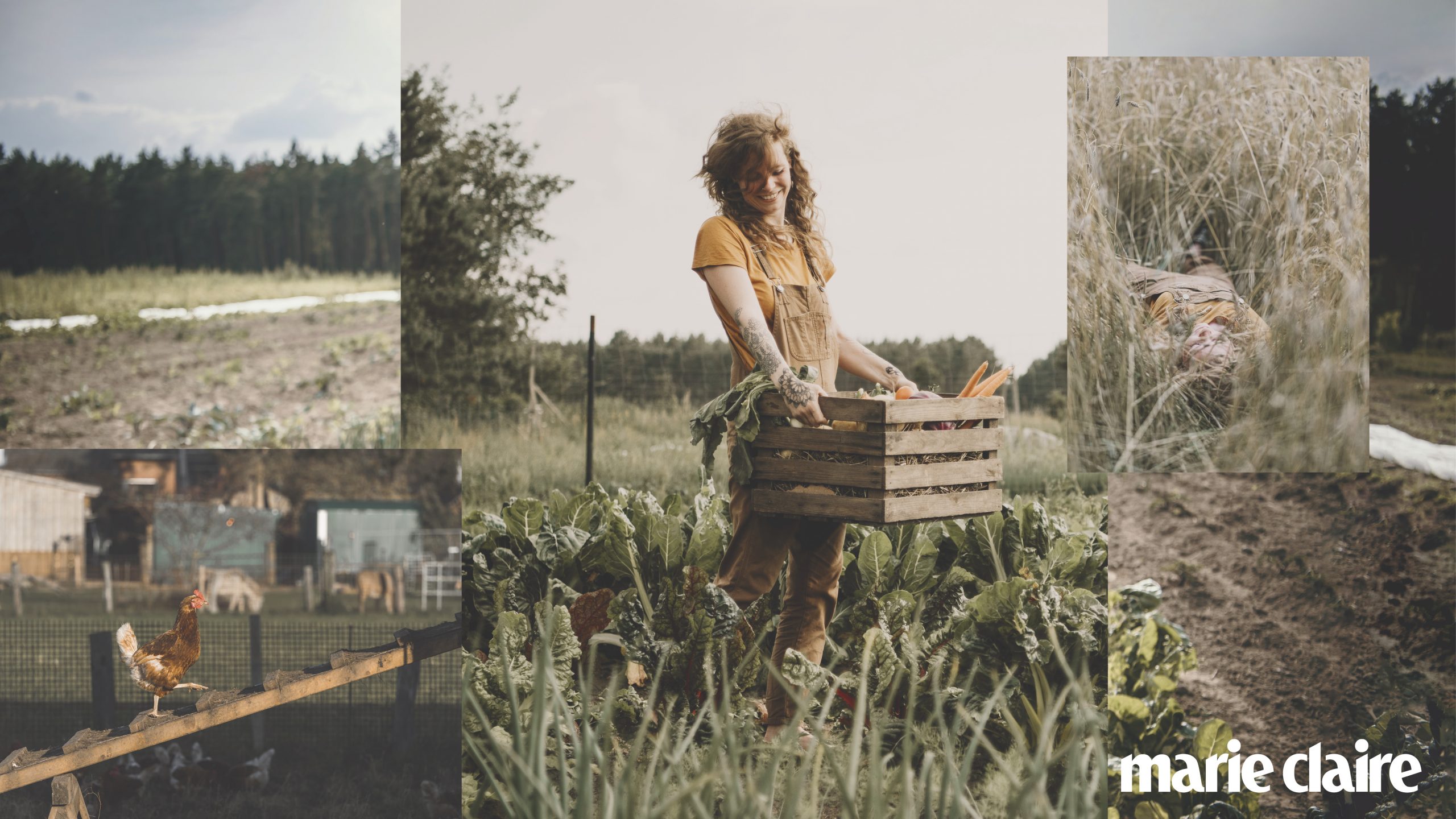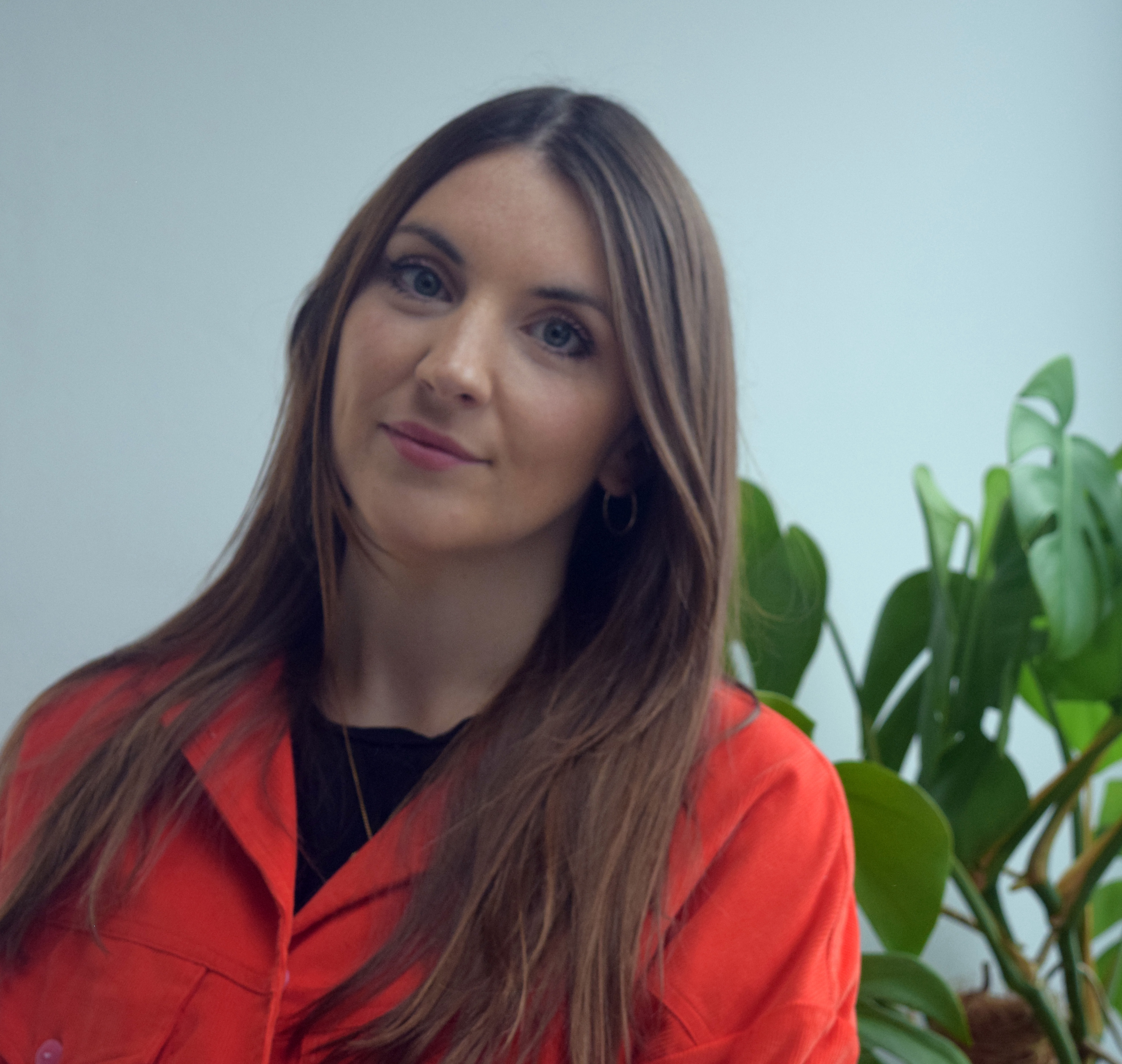The rise of rural influencers: how the pandemic popularised country living
Swapping green juices for actual slime and miniature poodles for pigs, female farmers are attracting thousands of followers on social media. Kate Hollowood explores what’s driving this trend and what it means for women.


Swapping green juices for actual slime and miniature poodles for pigs, female farmers are attracting thousands of followers on social media. Kate Hollowood explores what’s driving this trend and what it means for women.
Exhausted and soaking wet from fixing a water trough, Laura Hodgkins, 34, sees her phone light up with Friday night drinks orders. When she first left her marketing job for full-time farming in West Sussex, her London friends’ Whatsapp chat would trigger bouts of FOMO. But today she feels nothing but excitement at the prospect of a long bath and bed at 9pm.
If anything, Laura’s friends look at her enviously nowadays, as she shares updates on her flock of 3,000 sheep, country walks and cakes baked with freshly-laid eggs. Of the 13.5k people that follow Laura on @girlaboutthefarm, 75% are based in London. “The countryside has become cool,” says Laura. “Which is weird to me, because city living has always been more aspirational.”
It surprises me too. When I discover that Laura is based in the same sleepy West Sussex village as my parents, I’m taken aback by Bepton’s unlikely online fame. Growing up in the countryside, I couldn’t wait to live in a city. “My husband and I do bring the average age of the village down quite a lot,” says Laura. But studies suggest this could change, with more than a third of 18-34 year olds in the UK looking to move for a better quality of life.
But it's not just in the UK that young people are showing a huge appetite for countryside content like Laura’s; globally, there's a similar trend. Take Leeanna Thomas in Texas for example, who shares Tiktok videos of her herd of cows enjoying spa days, or Li Ziqi who has gained millions of followers with videos of her farm in Sichuan. Alongside these farming accounts, cottagecore has taken over social media. Showcasing idyllic country lifestyles, the trend is synonymous with floral dresses and picnic baskets or activities like knitting and foraging.
Leading fashion houses have also gone wild for pastoral themes. For Spring/Summer 20, French designer Jacquemus staged his show in a Provençal lavender field, while Dior dressed its models in spring flowers and a gown resembling a haystack. And, despite dismal UK weather, prairie dresses have dominated summer style in 21. So what has been driving this flip in aspirations?
Thanks to lockdown and new opportunities in remote working, for many people, cities have lost their shine. House prices in the least-densely populated areas of the UK have risen almost twice as much as those in the most-densely populated areas over the past year, in what has been dubbed a ‘race for space’. In January, PwC predicted that the population of London could fall in 2021 for the first time in more than 30 years. “Everything got stripped away in lockdown, and so people have been seeking out simple pleasures and more wholesome living,” says Laura.
Celebrity news, beauty, fashion advice, and fascinating features, delivered straight to your inbox!
Dr Steven Taylor, Australian psychologist and author of The Psychology of Pandemics, explains why this behaviour is predictable: “People have always fled the cities for the safety of the countryside in outbreaks, as nature provides respite, serenity and recreation. This has happened since the earliest documented pandemics.”
Kent-based farmer Zoë Colville, aka @thechiefshepherdess, says her 30k following took off during lockdown. As life slowed down, people took a new interest in where their food comes from, with many wanting to thank farmers for keeping them fed. “People had time to enjoy nature and realised that a simpler life is more pleasurable than the rat race, while those stuck in cities wanted what they couldn’t have,” says Zoë.
And then there’s the therapeutic benefits of being in nature. “Animals are incredibly healing,” says Zoë. Previously a hairdresser, she only started working full-time on her husband’s farm after her dad passed away suddenly from cancer. She remembers finding it easiest to cry when she was alone feeding her calves. On the farm, where death is so ordinary and inevitable, Zoë was able to accept her father’s passing and that it was beyond her control.
“From a psychological perspective, returning to nature and the countryside is one of the best things we can all do for our mental health,” says UK psychologist Dr Chloe Paidoussis-Mitchell. “It reduces chronic daily stressors, such as crowded spaces, crime and difficult commutes. The countryside also offers social safety, as in a village you have a community who look out for you and your family. This is a huge comfort to many who have experienced intense loneliness living in crowded cities."
While these wellbeing benefits are no doubt a good thing, a swerve back to country living raises questions for women. For centuries, the only option for the majority of females was to work on the land and run the home. As women have joined the workforce in greater numbers, the drive for equality has focused on getting more women into more highly-paid, high-powered roles — opportunities that predominantly exist within towns and cities. And now, though we are still far from reaching equality, women hold one in three boardroom roles at Britain’s top 350 companies. Does a trend that idealises women’s domestic achievements risk setting us back?
Hannah Jackson, otherwise known as @redshepherdess, only sees progress. “Women cover all bases on a farm, whether that’s the labour outdoors, taking care of the business side or running the home,” she says. “Women have always been farmers, but thanks to social media they are speaking up about it. Someone called me a farmer’s wife the other day and I was livid. You never hear anybody talk about farmer’s husbands.”
In fact, it was Hannah who got her husband into farming, not the other way round. Watching a sheep give birth on a family holiday, Hannah had a “lightbulb moment” about her calling in life and now has 250 sheep, goats, a pony, pigs, chickens and ducks on her farm in Cumbria.
“I love the life I’ve created and don't dread Monday morning, or look forward to the weekend,” she says. “It’s not about being more domestic, but about going back to the simple things in life”.
